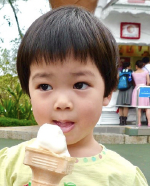Although New Years’ Day in the U.S. has long passed, expect to hear some wishes of “Happy New Year” within the coming days. Occurring this Saturday, January 28, the Lunar New Year is one of the biggest holidays of the year, and many Choate students are among its celebrators. They have fond memories of bonding with their families, consuming lots of food, and receiving money. But what exactly is the Lunar New Year?
Unlike the Gregorian calendar, where a new year is recognized each time we cycle around the sun, lunar calendars follow moon cycles. In the Chinese tradition, each year also has an associated zodiac; 2017 is the Year of the Rooster, meaning babies born this year will be responsible and trustworthy. Lunar New Year is also celebrated in many Asian countries besides China, including Korea, Japan, and Thailand.
When at home, most Choate students who celebrate the Lunar New Year follow the general tradition of gathering with family members and eating cultural food. Some, like Riley Choi ’18 and Andy Si ’18, gather in the eldest family member’s house, while others, like Se Ri Lee ’19, change the designated meeting house from year to year. (Choi, Si, and Lee are all of Korean heritage.)
The festival can also be an opportunity to honor deceased family members. “We bow and then we offer some food to our ancestors,” said Choi, while Si visits the cemetery to pay homage to buried members of his family.
Once the family is gathered, perhaps one of the more common and exciting rituals many students observe involves children bowing down before their older relatives and receiving money in red envelopes. Thai student Pavin Sethbhakdi ’18, who has a big family, received about $100 in one night during a previous Lunar New Year celebration. “That’s why it’s good if you have a lot of relatives!” he joked.
As for food, the dishes that are prepared for the holiday vary not only from country to country, but also from region to region and even household to household. A few common delicacies are dumplings, moon cakes, and Korean rice cakes.
Mark Su ’18, who is from Bejing, China, explained the significance of some foods: “Dumplings symbolize good luck and wealth because they are shaped like an ancient golden currency. We also have soup, because soup is a mixture of all things, just like families are a mixture of all members.”
One of the traditions Alan Luo ’18, who has spent much of his life in Hong Kong, used to observe was that of stuffing a coin inside of a dumpling during their preparation. “Whoever in the family gets the coin in the dumpling will have good luck for the rest of the year,” said Luo.
Students who live nearby can enjoy a food-filled family reunion during a school weekend, but boarders who want to celebrate have to be creative. “Last year, Lunar New Year happened during Long Weekend, so I went to a friend’s house and we made dumplings and watched NFL,” shared Amy Gao ’19, a student from Jiangsu, China. Other students, like Sethbhakdi, “just Skype or FaceTime parents and grandparents, eat dining hall food, and do work.”
To provide students of all backgrounds an opportunity to celebrate this holiday, the Asian Student Association, Chinese Club, and Choate Korean Friendship Association partner with each other to organize Choate’s annual Lunar Banquet. Taking place tonight, January 27, in the Library Reading Room, the Lunar Banquet is offering a variety of Asian food options.
“It’s a great time for people in the Choate community to come together and celebrate an Asian holiday that’s pretty significant and have a nice time,” said Angelina Heyler ’18, who is a member of the Chinese Club cabinet.
Whether they are rooted in long-standing tradition or are a hybrid of different cultures, the many ways Choate students celebrate the Lunar New Year reflect the diverse backgrounds they hail from.



